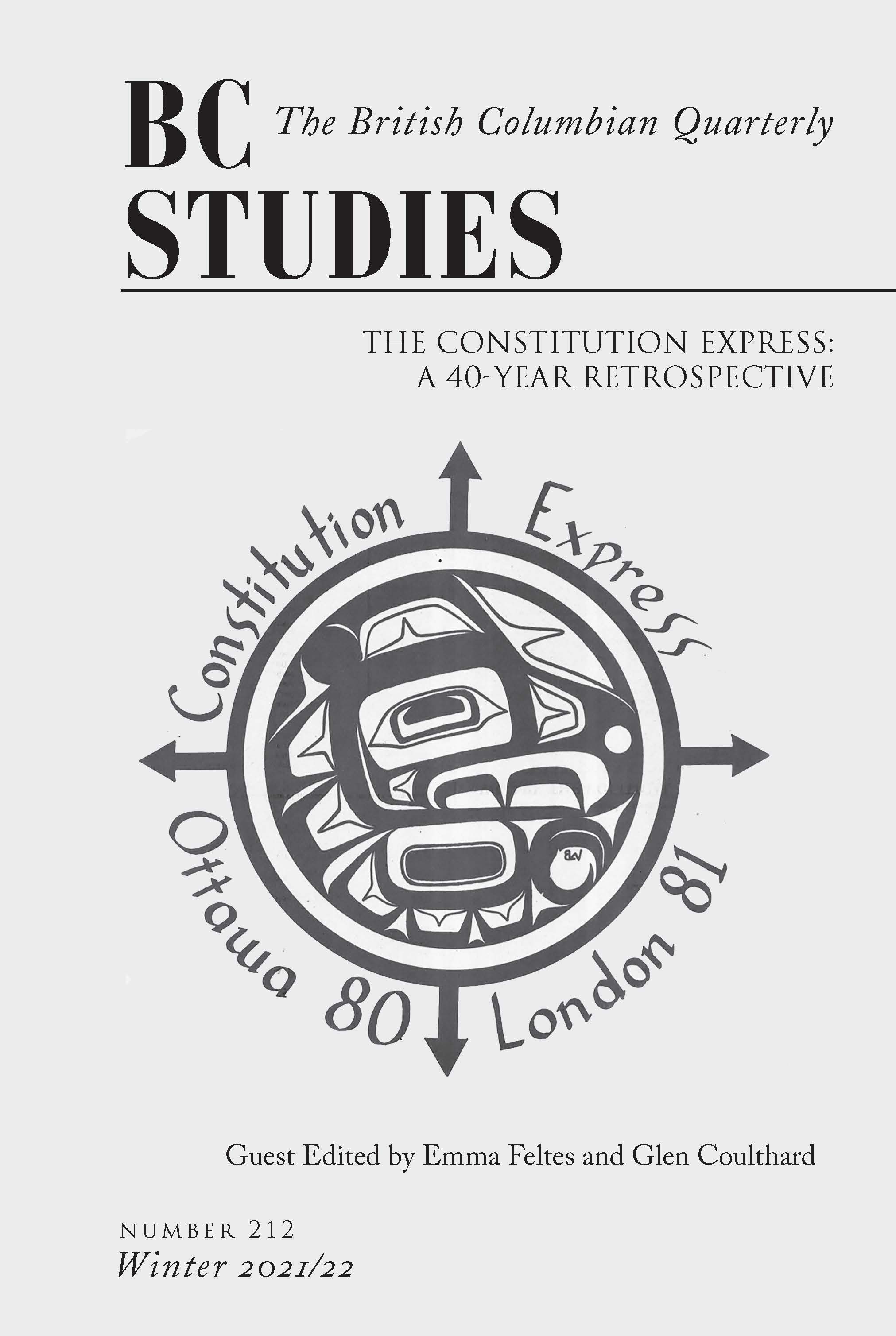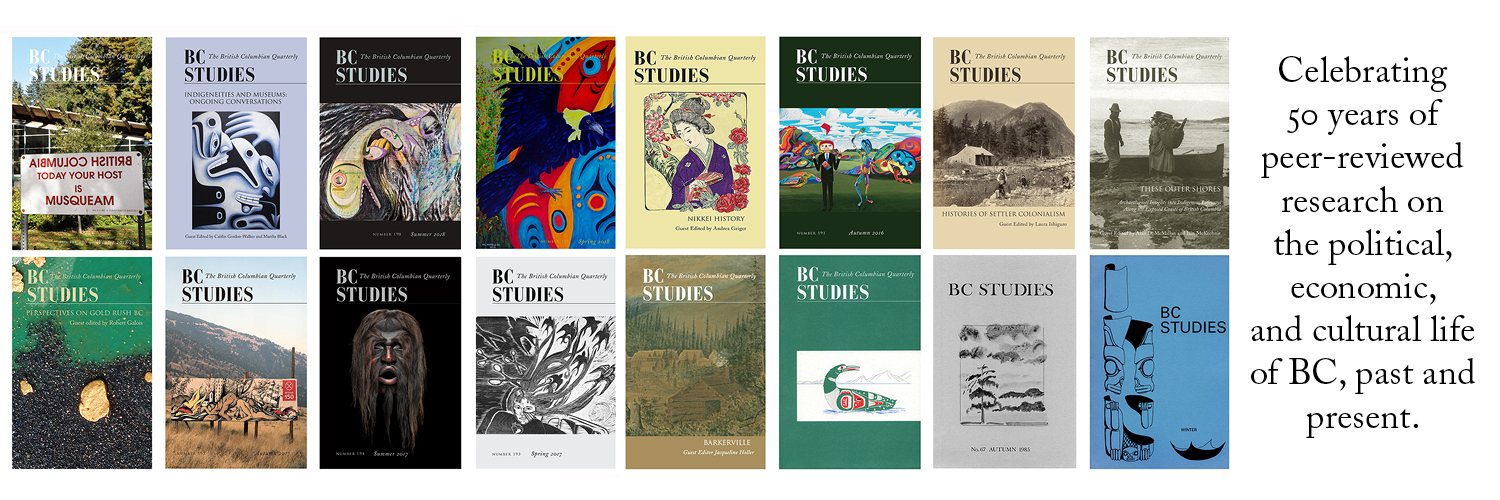“We’re Not Going to Stop for Anything": Concerned Aboriginal Women and the Constitution Express
DOI:
https://doi.org/10.14288/bcs.no212.192444Keywords:
women, aboriginal people, aboriginal rights, Constitution ExpressAbstract
On 20 July 1981 a group of Indigenous women calling themselves the “Concerned Aboriginal Women,” arrived at the Department of Indian Affairs (DIA) regional headquarters in downtown Vancouver. Once inside the fifteenth-floor offices, the women informed staff they were there to stage an occupation.The Concerned Aboriginal Women (CAW) was not a longstanding group, or even a very organized one. It had formed spontaneously the previous day when several women gathered at the Constitution Express Potlatch in Lytton, British Columbia and, realizing the extent of their shared grievances against the Canadian government, decided they needed to act. The creation of the CAW built on existing political efforts in communities that summer (using the potlatch as a launch point for the group), but it also departed from them by creating a splinter group made up solely of women. The CAW, which would go on to take part in fundraising activities to support the Express and travel to Europe with the delegation, provides an important window into the gender dynamics of the Constitution Express movement. Examining the community potlatches, fundraising efforts, and Concerned Aboriginal Women’s activities, I suggest that the Consistution Express movement, which largely existed within the male-dominated Chiefs’ organization, was influenced and driven by women. Women’s involvement in the movement was not only paramount to its longevity and breadth, but ensured that everyday issues facing community members were discussed alongside of patriation.



